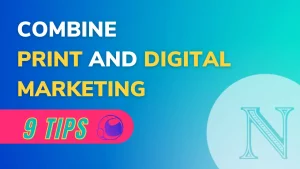There are many reasons why you should learn to code.
Learning to code helps develops our problem solving skills and computational thinking, it helps us express our creativity through building solutions to problems we see around us.It helps create value around us by making people’s life more convenient or even creating jobs for people when the solution is commercialised.Here are some reasons to why learning to code is more crucial now than ever.
- Create the Future else have your future decided by someone else
- Inclusion of Tech into Traditional job roles
- The Blue Ocean – New fields and new type of tech jobs
- Digital Transformation Requires Everyone’s Participation
- Entrepreneurship Made Possible with Tech
1. Create the Future else have your future decided by someone else

My cousin who’s 14 told me that the public school she is in has just made learning to code compulsory. I took some time to think about its impact.These children will be the new wave of talent who would be code literate. In 10 years time, they will be flooding the job market.At that time, all companies would have digital footprint and would have already implemented some form of latest deep tech we see today.10 years later:
- She would be 24, representing freshies in the workplace
- I would be 40, representing mid- to senior management personnels
Let’s assume when you reach mid- to senior-management, your role would be secured (optimistically speaking).When this wave of code literate generation floods the job market, what would happen to the people between the age of 25 – 40? These people would be sandwiched in between and the only way out for them is to upskill themselves. This is a reminder to everyone, “Be a creator to define the world around you, else everything will be decided for you by someone.”
With the power to code, you have the power to create and the ability to make a mark in this world. You have that choice to include yourself into this equation rather than to play by people’s rules. For all of us, we have to make that choice to be ready for the future.
2. Inclusion of Tech into Traditional job roles
I’m not going to throw you numbers on how many tech job opportunities are arising on job boards year on year. One source said that the UK will need 1.8 million more by 2025. Another source said that there will be as many as 3.5 million unfilled positions in the industry by 2021.
I’ll say, it sounds like the need for tech people is not going to diminish anytime soon.Recently a coding graduate of NEXT Academy told me that he interviewed for a role in consulting. Chen Keong, who was once an auditor that learned to code, said, “Wow, I didn’t know that they were looking for coders even in the field of consulting. The partner was pretty excited when he saw I could code.”
I asked him what would he be using his coding skills for, he replied – data crunching, data analysis and building report dashboards. He continued saying, “tech is really changing the world. Some jobs may be replaced, but more jobs will be redefined to include elements of tech in it. This means more opportunities just by having the ability to code. You should tell that to all of NEXT Academy’s graduate, the possibilities are endless.”
Employers are now seeing how code could redefine these existing roles in the market. In a few more years, they won’t just look for an auditor, but an auditor who can code. Not just a banker, but a banker who can code. Not just a marketer, but a marketer who can code.
The phrase “…who can code” is like a wild card, a treasure box of sorts. Employers are excited to try their luck on what they can create with talents who can code.
Previously I shared about our student who’s an accountant, Zac built an app for one of the Big 4 accounting firm to automate data entry for 40,000 reports. Everything is done in 11 mins.
So, is there any downside in hiring someone who can code? Not at all. An accountant who can code is still an accountant by nature, but maybe, he/ she could use their coding skill to redefine how accounting is done in the workplace. And, that’s what all employers are aspiring for.
Now tell me: If you can code, how would you redefine and reimagine the job you are currently in?
3. The Blue Ocean – New fields and New Type of Tech Jobs

It is common news hearing about the effects of tech disruption – how new jobs are popping up and old jobs being thrown out of the window. News like these are catered to people looking for jobs and trying to stay relevant. But often I find these news sensationalised without providing us the big picture on how exactly can tech be used in companies.
Let’s talk about the trillion dollar blue ocean which companies want to get into.I have to refer to McKinsey & Company’s newsletters which I follow fervently. If there are any trends worth looking into, you would want to see if it was mentioned by McKinsey.”
Tech-enabled disruption is the new battleground for companies”No one can afford to fall behind else they would risk being wiped out from the scene. Successful tech implementation also has the ability to unlock trillion-dollar opportunities – be it by expanding revenue or bringing cost down!Here’s a diagram McKinsey put together on what companies can do for various parts of their organisation.You will be able to read more from this article.When it comes to tech enablement, here are some key areas to look at:
- Data analysis
- IoT implementation with data
- Artificial Intelligence
- Machine learning & deep learning
- Bots and algorithms
- Digital Marketing
- Blockchain
People with the above mentioned skills will find themselves well sought after as the industries’ needs continue to grow. These hot trending tech disciplines are currently disrupting the market with one thing in common – making decisions with meaningful data to bring greater value to the company.
Learning to code is the first step to unlocks access to these disciplines (because they require you to code to implement them).
Do you want to be the forerunner in this race to the blue ocean? If yes, you know what you need to do.
4. Digital Transformation Requires Everyone’s Participation
Companies today are talking about digital transformation. Especially big, established companies. They cannot afford to undermine tech. They know that they needed to be at the forefront of innovation, else they would be vulnerable to disruption.
These companies are willing to host hackathons and tech events, just so they can be the first to know what technology they could potentially acquire and be mindful of.
These companies are ready to change the way they operate and deliver value to their customers. Here is a snapshot of how technology can optimise all parts of a company by McKinsey.
They are also willing to pay top dollars to hire talent. The trend recently are along the lines of Artificial Intelligence. Today, AI talent is scarce.
According to the interview between McKinsey and Andrew Ng (the Co-founder of Coursera, AI fund), he said, “For a lot of the companies, the best hope might be to try to hire one strong AI leader and then build a centralized AI organization that you can then matrix into your various business units.”
And he continued with this, “One other thing I’ve seen that’s really effective at a few organizations is to have executives send a very clear message that employee development is valued….
There are tons of resources on the Internet, but to use resources like that to level up your whole employee base, that would make your whole organization more effective at maybe working with your centralized AI organization.”
What he is ultimately saying is that – even if you were to hire the top talent in the world, everyone in your organization needs to be ready for it. If they are not ready or upskilled for it, it would not work.In this case, what are the plausible options?
- The company gets disrupted, OR
- they would be reevaluating the talent within the company
The company you are in will inevitably go towards a more digital path whether you like it or not if it wants to survive the next 10 years.
You have to ask yourself, “Am I digitally literate?” and “Am I ready to have my role redefined by tech?” If you said no to both, it’s time to open up your mind through code.
5. Entrepreneurship Made Possible with Tech

There is a cycle for everything and that includes entrepreneurship as well. Every industry has its phase for early adopters to strive big time.
For example, it’s almost impossible to think about getting into property development these day if you don’t have (very) big capital. But 50 years ago, people who dare take the leap are the billionaires of today.
It’s pretty impossible to get into commodities trading today in a very big scale unless you have a very strong network and capital to reach economic of scale. Today, you’ll be fighting with incumbent market players who made their names in the past 50 years.
I hope you get what I mean.The creative implementation of tech was the key that disrupt this principality, this hidden world of economic status. For once, even the giants are fearful. There is a very big possibility that their dominance can very well be displaced.
The very big example in Malaysia would be GRAB. A big number of taxis are owned by cartels with sheer dominance in the scene. If you want to be a taxi driver, you would need to pay a rather hefty sum to even be one. You would rent a car from them and every month, you would need to pay a sum to the cartel regardless.
The presence of GRAB (though in the early days overlooked) changed things drastically. Taxi drivers who wants to be independent can now use their own vehicles instead of renting one. Female cab takers can now feel rest assured on their safety (just a mere decade ago in Malaysia, the biggest fear were taxi rapist). People are no longer afraid to be “slaughtered” by unethical cab drivers who do not want to follow the meter.
It redefined everything we knew about public transportation. And for that cartel, they did rounds and rounds of protest asking for the government to step in and protect them from this disruption.
With this example, you can see that tech has the ability to level the playing field. No one can stop or should stop innovation. In recent years, many jumped unto the innovation bandwagon to close the efficiency gap between tech and non-tech, all just with their ability to code.
Today, another wave of innovation is coming. With the new demand for AI, Blockchain and IoT, the cycle is starting again.
The question is, do you have the skillset to ride on this entrepreneurship wave? Certain opportunities are only once in a lifetime.
In a Nutshell
All these 5 reasons to learn to code have a common theme: It is all about value creation for a greater good. An individual who learns to code, provides value via creation. A big company which encourages its employees to be more digital, can leverage on its deep pockets to amplify innovation so that it can expand and create opportunities for more people. And finally, entrepreneurship is about creating value that have not existed previously.
Why learn to code? To create value.
-
Josh Tenghttps://www.nextacademy.com/author/josh/
-
Josh Tenghttps://www.nextacademy.com/author/josh/
-
Josh Tenghttps://www.nextacademy.com/author/josh/
-
Josh Tenghttps://www.nextacademy.com/author/josh/
 What We Have Done |
What We Have Done | 

